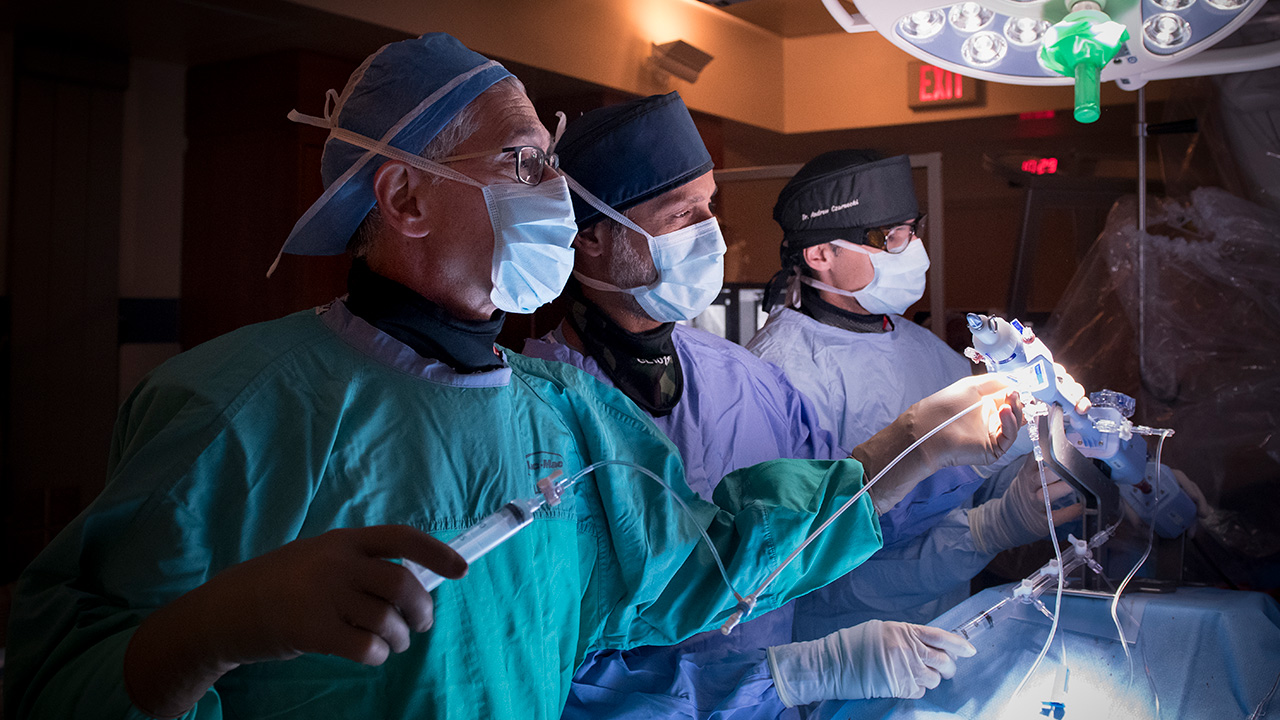World first: Minimally invasive mitral valve repair ring offers option for inoperable patients
In a first-in-human procedure, a team of cardiologists and cardiac surgeons at Sunnybrook Health Sciences Centre implanted a specialized mitral valve repair ring through a catheter, giving hope to patients who otherwise would be out of treatment options.
Mitral regurgitation is a common heart disease as people age. When the valve no longer closes properly, blood flows backwards into the upper heart chamber and patients find themselves out of breath during normal activities. If left untreated, severe mitral regurgitation can cause heart failure and serious heart rhythm problems or arrhythmias.
Open heart surgery has been the standard treatment for mitral regurgitation and involves stopping the heart and keeping it pumping on a machine. For patients who are older or have other medical complications, the surgery can be risky and has a recovery time of one to three months.
A minimally invasive procedure using a MitraClip is an option for patients with severe symptoms who may be too at risk for open-heart surgery, but not everyone is a candidate.
“There are only one or two devices worldwide that do this type of mitral valve repair minimally invasively, and none are readily available in North America,” says Dr. Andrew Czarnecki, an interventional cardiologist who performed the procedure with Dr. Eric Cohen, interventional cardiologist and Dr. Gideon Cohen, cardiac surgeon of Sunnybrook’s Schulich Heart Program. “The only approved device available is the MitraClip, but based on anatomic challenges, the patient was not a candidate.”
The ability to use various medical devices to repair valves, such as the MitraClip and TAVI depend on a variety of factors, but most notably they need to fit the anatomy of the patient’s heart.
The AMEND™ annuplasty ring can be used for inoperable or high-risk surgical patients to provide treatment for acute mitral regurgitation. During the procedure, a catheter is inserted into the patient's groin and travels up into the mitral valve. The ring is fed through this catheter, where it finally grasps and tightens around the valve, effectively preventing blood from leaking. The ring remains in place while the catheter is removed, with the entire procedure taking approximately two hours, and is performed under general anesthesia without the use of a heart-lung machine, and without opening the chest.
“While the ring alone may be enough for some patients, it also adjusts the anatomy of the valve to allow for a more conventional MitraClip repair that would otherwise be infeasible,” says Dr. Eric Cohen.
"This unique technology provides us yet another important tool with which to treat patients previously deemed inoperable,” adds Dr. Gideon Cohen. “We are pleased to have been able to offer this procedure to a patient who had no other surgical or device options."
The AMEND device is limited to investigational use and is not commercially available. It was performed at Sunnybrook with permission from the Health Canada Special Access Program.
Media contact:
Katherine Nazimek
Communications Advisor
416-480-6100 ext. 62250
Katherine.nazimek@sunnybrook.ca






